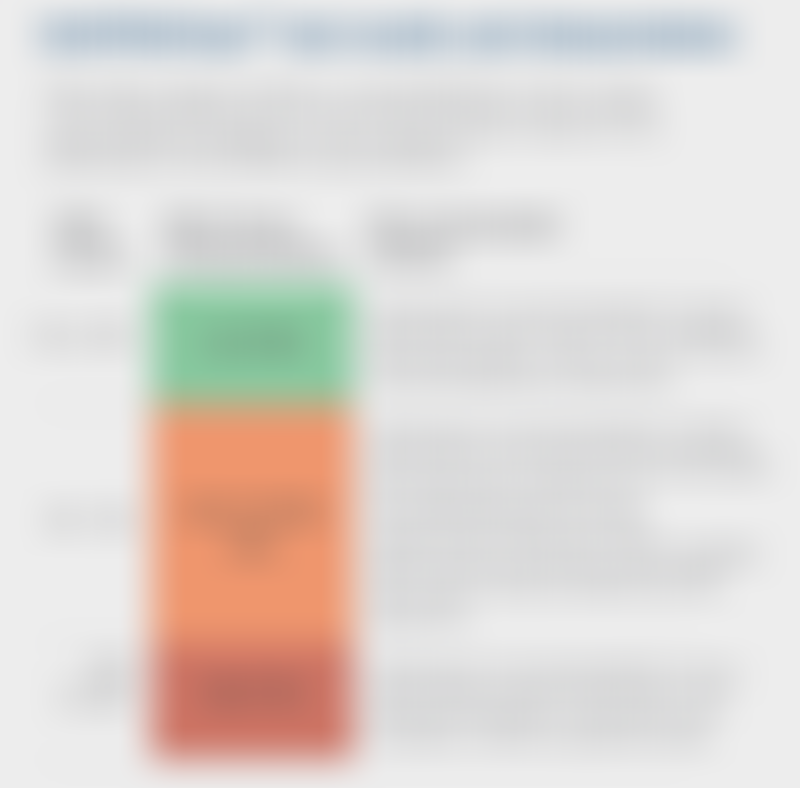GASTROClear: The First Blood-Based Test for Early Stomach Cancer Detection

Source: Shutterstock
The importance of early detection in gastric cancer
Every year, more than 1 million people across the globe are diagnosed with stomach (or gastric) cancer. In the United States alone, it was estimated that about 11,130 deaths were caused by the disease in 2023. Unfortunately, stomach (or gastric) cancer is often overlooked and diagnosed at later stages because many cases do not exhibit signs or symptoms. Once these symptoms do appear, the cancer may have already progressed to an advanced stage.
Research efforts have shown that if cancer is diagnosed early while still confined to the stomach (localized), the five-year survival rate is 72%. In fact, close to 90% of people diagnosed with stage 1 gastric cancer have good outcomes with curative treatment. Apart from survival, early detection can also help gastric cancer patients save money, reduce their hospitalization time, preserve their overall health and ultimately provide them with better long-term quality of life. This underlines the importance of screening and early detection in gastric cancer diagnosis.
The gold standard method for gastric cancer screening is an upper endoscopy (or gastroscopy), which is highly sensitive and accurate in diagnosing the disease. However, the invasiveness of this procedure can put off many people from ever opting for it and can lead to poor compliance. Not only can it cause discomfort, but in rare instances, it may cause complications such as tears in the gastrointestinal tract and subsequent bleeding.
This has prompted mounting research in the field of non-invasive screening methods. One newly invented test is the GASTROClear kit developed by Singaporean-based biotechnology company MiRXES.
What is GASTROClear?

Source: Health365
GASTROClear is a blood-based diagnostic test designed to detect gastric cancer in people who may not be showing any symptoms yet. It is the first molecular blood test in the world for early detection of the disease.
How does GASTROClear work?
The test kit works by measuring the levels of 12 different microRNA (miRNA) biomarkers that are associated with gastric cancer and present in the blood. The expression levels of the 12 miRNAs are translated into a risk score, which is calculated by a clinically validated algorithm.
Depending on their respective risk scores, those who take the GASTROClear test are classified as high, intermediate or low risk, with specific follow-up recommendations for each group. In this way, GASTROClear enables doctors to assess a person’s gastric cancer risk and identify patients who may benefit from more detailed medical examination in the form of a gastroscopy.

Interpretation of GASTROClear test results based on risk scores. Source: MiRXES
What are the benefits of GASTROClear?
Earlier detection of gastric cancer
The panel of 12 miRNA biomarkers used in the GASTROClear test is able to detect up to 89% of early-stage (stage 1 to 2) gastric cancers. Early detection can ensure that timely life-saving treatment is administered to patients with the disease.
Detects all stages of gastric cancer with high accuracy
The 12 miRNA biomarkers have been shown to detect 87% of all gastric cancers, from stage 0 (high-grade dysplasia) to stage 4 disease. This is in contrast to conventional biomarker tests in the market, such as serology tests which are much less reliably associated with gastric cancer and thus less accurate detection tools alone.
Further testing via gastroscopy and biopsy can be done to differentiate between the cancer stages, for intermediate- and high-risk individuals who undergo a follow-up gastroscopy after taking the GASTROClear test.
Detects gastric cancer before symptoms appear
By detecting gastric cancer in its early stages, GASTROClear allows doctors to identify individuals who are at increased risk of developing gastric cancer even before any symptoms appear.
Minimally-invasive nature of test kit
Only a single tube of blood, or 5 to 6 mL, is needed for the GASTROClear test. The test is not intended as a replacement for gastroscopy and should be used together with the diagnostic procedure. However, its minimally-invasive nature can appeal to high-risk individuals who are not keen on first-line gastroscopic screening and encourage higher uptake among the public for early detection of gastric cancer.
“The test does not replace endoscopic evaluation. We believe this assay provides an option for patients who might not be keen on initial endoscopic screening and adds to the current cancer detection tool armamentarium, just as the stool DNA test is an option for colon cancer screening. Furthermore, the convenience and non-invasiveness of this test allows the public to have access to better health-care.”
– Associate Professor Too Heng-Phon, Co-founder, Chief Scientific Advisor and Non-Executive Chairman, MiRXES
Cost-effective screening
In the United States, the average cost of an upper endoscopy without insurance can range from US$1,000 to US$5,000 or more. On the other hand, the GASTROClear test is priced below S$200 (US$150) at public hospitals in Singapore where they’re currently available. Therefore, by complementing existing diagnostic methods, GASTROClear can allow for more cost-effective gastric cancer screening.
Who is GASTROClear intended for?
This diagnostic test is intended for adults aged 40 years and above, at average risk of gastric cancer with one of the following risk factors related to medical history and lifestyle habits:
- Family history of gastric cancer
- History of Helicobacter pylori infection
- History of stomach lymphoma and stomach polyps
- Long-term inflammation of the stomach (chronic gastritis)
- High intake of fried foods, smoked foods, processed meats, salted fish and pickled foods
- High intake of food containing nitrites and nitrates (usually found in cured meats)
- Low intake of fruits and vegetables
- Heavy smoking or alcohol consumption
Is GASTROClear available now?
GASTROClear was first approved in 2019 by the Singapore Health Sciences Authority, following a prospective clinical validation with 5,200 subjects from Singapore. GASTROClear is now available across Southeast Asia, including Singapore, Malaysia, Indonesia and the Philippines. Within Singapore, it has been progressively rolled out at over 200 clinics and hospitals for pre-screening of gastric cancer.
In August 2023, MiRXES, the company behind GASTROClear, revealed that the United States Food and Drug Administration (FDA) granted Breakthrough Device Designation for the novel diagnostic test. This designation is only given to certain medical devices addressing unmet needs and offering more effective diagnosis or treatment of life-threatening or irreversibly debilitating diseases, which includes cancer.
GASTROClear’s designation marks the first time that a blood miRNA test, an in vitro diagnostic (IVD) test for early gastric cancer detection, and a molecular IVD test developed in Southeast Asia, has been granted a Breakthrough Device Designation from the US FDA. Under the program, GASTROClear could soon become available as an early detection test option for individuals at high risk of developing gastric cancer.
“The Breakthrough Device Designation further validated the novelty and clinical impact that GASTROClearTM can deliver in the field of gastric cancer early detection. As part of the Breakthrough Program, we are looking forward to interacting with FDA’s experts to obtain their continuous guidance during our pre-market review.”
– Dr Zhou Lihan, Co-founder and CEO, MiRXES